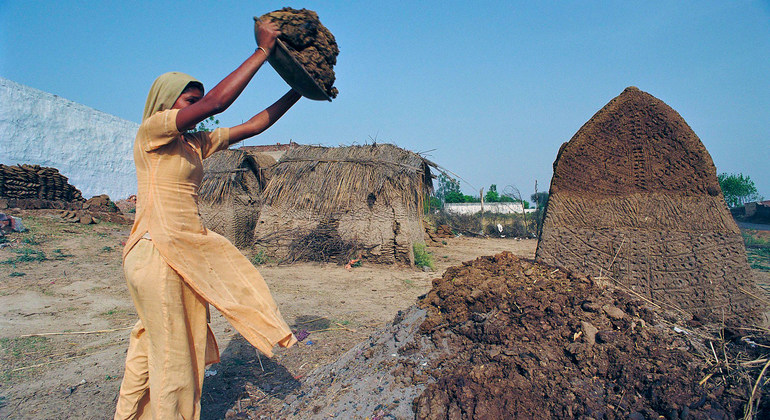“Our challenge is clear: to achieve net zero emissions by 2050, the world must cut carbon emissions by at least 45 per cent below 2010 levels within the next decade”, Secretary-General António Guterres said.
He joined more than 20 ministerial-level “Global Champions” for the virtual launch of substantive preparations for the High-level Dialogue on Energy, a summit-level event he will convene in September.
He underscored that the world was “way off track” and needed to use the COVID-19 recovery period to build a sustainable economy, driven by renewables.
“If we want this energy transition to be just, and to succeed in creating new jobs, a cleaner and healthier environment and a resilient future, developing countries need strong support”, said the top UN Official.
Leading up to the summit in September, Mr. Guterres saw the dialogue as an opportunity to “accelerate the deployment of renewables globally and ensure that the developing world has access to them”.
Governments, businesses and others will be urged to present stronger commitments in the form of voluntary Energy Compacts, for how to accelerate action and achieve clean, affordable energy for all by 2030 and net zero emissions by 2050.
Working together
Five Technical Working Groups will prepare a global roadmap for achieving the seventh Sustainable Development Goal (SDG 7); affordable and clean energy for all by 2030 and net-zero emissions by 2050.
As energy consumption accounts for three-quarters of all greenhouse gas emissions, it will also contribute to addressing the climate crisis.
And in the months ahead, the Global Champion Ministers will galvanize voluntary energy compact commitments towards achieving SDG 7, which will align with countries’ plans committing them to increasingly ambitious climate actions, or Nationally Determined Contributions (NDCs), and long-term climate goals under the 2015 Paris Agreement.
During this transition year, the co-chair of the High-level Dialogue and Special Representative for Sustainable Energy for All upheld the need for bold action so no one is left behind.
“From powering health clinics to creating new jobs, energy is at the heart of a prosperous future for all”, said Damilola Ogunbiyi, also a High-level Champion. “Faster progress on SDG 7 will support climate action, allow us to recover better from COVID-19 and achieve our global goals.”
Recommit to the future
In addition to environmental impacts, the continued use of solid cooking fuels indoors cause over 1.6 million premature deaths a year, most of them women and children, according to the UN.
From powering health clinics to creating new jobs, energy is at the heart of a prosperous future — High-level Champion
The global roadmap and energy compacts push transitions away from fossil fuels while helping some 800 million people who have no access to electricity, and nearly three billion who lack clean, modern cooking and heating fuels.
“The push this year on sustainable energy, leading up to the large-scale commitments we expect to be announced by many stakeholders…should help us take a giant leap towards achieving SDG 7 by the 2030 deadline”, said Dialogue Secretary-General Liu Zhenmin, who also heads the UN Department of Economic and Social Affairs.
Failure not an option
This year will see a series of UN summits and conferences including the Global Sustainable Transport Conference, the Food Systems Summit, and the key Conference of Parties to the UN Framework Convention on Climate Change in Glasgow (COP 26), that will provide major opportunities to advance the SDGs and the Paris Agreement.
“The year 2021 must be a historic tipping point towards sustainable energy for all,” said Achim Steiner, co-chair of the High-level Dialogue and Administrator of the UN Development Programme (UNDP).
“As the existential threat of climate change looms, none of us can afford to fail. I urge every country, every organization, every business to become involved by joining an energy compact, a voluntary commitment to scale up sustainable energy”, he added.


